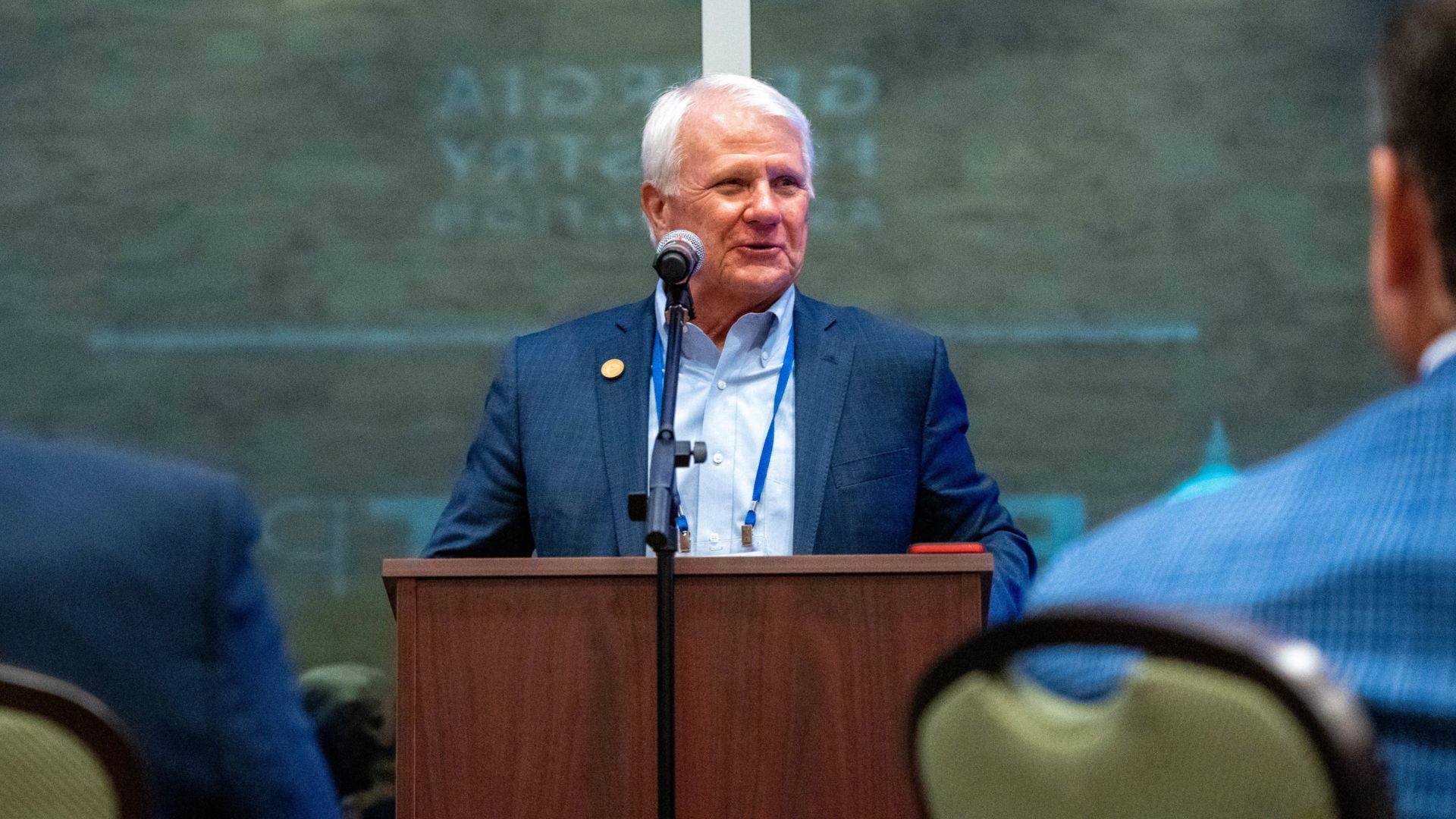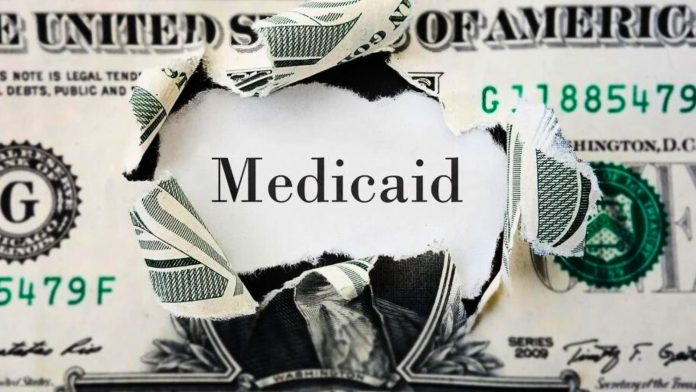Georgia – The state of Georgia and Georgia leaders opposed the expansion of Medicaid for years. This ‘stubborn’ decision has prevented the state of Georgia to move forward as it was politically impossible. But things are now finally moving into the right direction, at least, the healthcare expansion for more Georgia residents has now changed its status from ‘impossible’ to ‘unlikely.’
Georgia’s House Speaker Jon Burns is eager for lawmakers to think about increasing health insurance options as they start their work on Monday. He’s being cautious with his words, avoiding calling it a Medicaid expansion or linking it to “Obamacare.”
Stephen Lawson, a spokesperson for Georgia’s House Speaker Jon Burns, has confirmed on Tuesday to the media that Burns is looking forward to find a proper solution to expand access to healthcare across the state with the aim of lowering the costs. He further explained that Burns plans to meet with other fellow members in the coming period in effort to create a policy that will make all of that possible.
Only 10 states now don’t provide Medicaid to adults without insurance
Since North Carolina began giving Medicaid to adults without insurance on December 1, there are now only 10 states left that don’t help people earning up to 138% of the federal poverty level. This was a key part of President Barack Obama’s healthcare changes made in 2010.
In Mississippi, there’s a noticeable shift among Republican leaders who are now open to the idea of improving health insurance coverage. This change is happening despite the strong opposition from Tate Reeves, the Republican Governor who was just re-elected.

However, Robin Rudowitz from the Kaiser Family Foundation, who leads the foundation’s work on Medicaid and the uninsured, notes that other states aren’t showing much progress. Take Kansas, for instance, where Republican legislators are ignoring the efforts of Democratic Governor Laura Kelly. She’s been actively promoting Medicaid expansion through meetings with business executives, hospital leaders, and health advocates.
In a recent interview, Kelly expressed that she has countered every argument Republicans have against expanding Medicaid and sees no valid reason for not moving forward with it.
Similarly, Georgia’s Republicans were reluctant for a long time to join the Medicaid expansion. In 2014, they even made a law that prevented the governor from expanding Medicaid without their consent.
In July, Georgia’s Republican Governor, Brian Kemp, initiated a modest expansion of Medicaid. This program offers insurance to adults who can work and earn up to the poverty level – $14,580 for a single person or $24,860 for a family of three. To qualify for the “Georgia Pathways” program, individuals must prove they are working, studying, in rehabilitation, or volunteering for at least 80 hours a month. However, the enrollment has been slow, with less than 1,100 people joining by October.
Georgia started to think about Medicaid-like solution late in 2023
In Georgia, attitudes towards expanding healthcare coverage started to shift in November. This change was evident when state House members discussed how Arkansas uses Medicaid funds to provide private insurance for its residents. Similar to Medicaid, which stands as a standard, this system requires small copayments of $5 or less for most services and pays healthcare providers more than Arkansas’ typical Medicaid.
Missy Irvin, a Republican State Senator from Arkansas, shared with Georgia lawmakers that their approach halved the number of uninsured hospital and clinic visits, describing it as a major success for Arkansas.
Those who support broader health coverage are now feeling optimistic. They believe that, after a long time, significant changes in healthcare policies are finally being considered.
According to the Kaiser Family Foundation (KFF), expanding Medicaid in Georgia could offer insurance to over 430,000 uninsured adults. Out of these, about 250,000 can’t get subsidies for individual insurance plans. This leaves them without access to both Medicaid and subsidized marketplace policies. There are also others who qualify for marketplace policies but haven’t signed up yet.
KFF estimates that across the United States, about 3.5 million uninsured adults could get coverage if every state adopted Medicaid expansion.
As Georgia and other states start removing millions from their Medicaid lists – individuals who were kept on during the pandemic without reconfirming their eligibility – the topic of expansion gains significance. So far, Georgia has taken almost 450,000 people off its Medicaid rolls.
Democratic State Senator Nan Orrock from Atlanta criticizes Governor Kemp’s reluctance to expand Medicaid, especially as so many are being removed from it, labeling it as a failure in leadership.
Another aspect of any potential healthcare deal in Georgia could involve easing or completely removing the requirement for hospitals and health services to obtain certain permits. This issue is a key focus for Lt. Gov. Burt Jones, a Republican overseeing the Georgia Senate. The House, however, has been hesitant to relax these certificate of need rules. In North Carolina, a similar approach of reducing permit requirements played a crucial role in securing votes for expansion last year.
Georgia Senate Majority Leader Steve Gooch points out that his chamber, which leans more conservatively, is not in favor of a comprehensive Medicaid expansion. However, he indicates that a plan similar to Arkansas’s approach might have a better chance of passing.
Even if a healthcare plan is agreed upon, Governor Kemp of Georgia has the power to veto it. He has spent a significant amount of time winning a legal battle with President Joe Biden’s administration over the work requirement in the Pathways program. In a letter to Democratic members of Congress from Georgia in 2022, Kemp criticized the full expansion of Medicaid as a “failed one-size-fits-all” approach.
However, Kemp might find himself in a challenging position regarding Pathways, especially if Biden is re-elected. Georgia aimed to extend the program beyond its September 2025 expiration, arguing that the legal disputes delayed its launch. But recently, the federal Centers for Medicare and Medicaid Services declined to consider Georgia’s request for extension. They cited the state’s failure to meet certain requirements, including a period for public notice and comments.
Kemp may not necessarily need to actively sign a bill for it to become law. In Georgia, bills that are neither signed nor vetoed by the governor automatically become law after a certain period.
